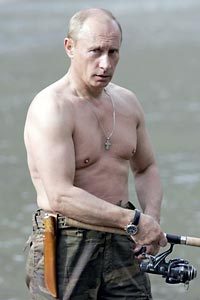I’ve been very busy, and had no time to thrash over John Pagani’s rather remarkable outbursts in defence of his tenure as the Labour party’s chief strategist, which ended a few weeks ago. Lots of commentary, but the best is by Danyl once, and again; Scott, and Eddie. Read the comments too.
I’ll not go into great detail, except to reiterate that the problem with Labour’s narrative — which John was presumably involved in constructing — has been that it lacks cohesion and a distinct, authentic character of its own. The song of the Labour party has failed to ring out these past two and a half years, it turns out, because John Pagani has been counselling his choir to mumble along to the prevailing tune, on the assumption that that’s the song the electorate wants to hear.
But how would he know? When Scott Yorke suggested that dismissing Danyl and Eddie as ‘trolls’ was an attempt to silence his critics rather than engage with the substance of their critique, Pagani tweeted “If only I could silence them.” That, right there in less than half a tweet, is in my view the root cause of the Labour party’s malaise. The predominant attack narrative which saw Clark Labour ejected from office in 2008 was ‘out of touch’, and I wrote in September 2009 that the way forward was for the party to start listening to the electorate again. John disagrees. I’ll let his record, currently illustrated by the 3 News Reid poll which puts Labour on 27.1% of the party vote, with 78% of the electorate believing the party cannot win the forthcoming election, speak for itself.*
John appears not to believe that a successful political movement needs to lead public opinion, rather than simply following it, and needs to be willing to alienate some people to that end. But most crucially it must listen to them. This was exactly the course of action advocated by Labour insider Jordan Carter back in January 2010:
Our task this year, to be blunt, is to listen to what people have been saying, and to go beyond listening, and into reflecting back the things we are hearing and seeing what people think. Instead of listening and saying “that’s nice”, we have to say, “we’ve heard you and this is what we think.”
Jordan was recently named on the Labour list at #40, which on current polling is sadly outside the running for a seat. But the party could do a very great deal worse than Jordan as a strategist; though who would want that job right now I can’t quite imagine.
Someone else who has been making sense on this topic is Matthew Hooton, who endorsed Eddie’s take in comments on The Standard post linked above. There’s a discussion about opinion polling in the comments to that thread as well, in which ak raises the fact that widespread reporting of poll results can influence turnout and voter choices. People like to back a winner, the reasoning goes.
Well, yes — but a couple of things: first, the ‘poll effect’ favours leaders, not one side in particular. The left has benefited from this in the past, it’s a bit churlish to complain about it now. Secondly, regarding the argument that landline-only polls favour conservative parties. There’s a good point here. Yesterday in the NatRad politics slot Hooton was pooh-poohing the landline bias, arguing various sorts of anecdata to say he didn’t think it made a difference. I’m aware of no rigorous research on this topic in NZ, and since (I believe) all the major polls are landline-only, it’s largely moot (polls are mostly useful as sources of continuous, compatible data — a known set of methodological distortions — and screwing with polling methodology breaks that). But Pew Research did study this in the US context late last year, and found a 6-point bias in favour of the Republican party in landline-only polls, compared to those which included cellphones. So it rather seems to me that the onus is on those who reckon there’s no bias to explain why and how the NZ context differs from the US context. I’m sure it could be done, but it’d take a good deal more than Matthew Hooton’s anecdotal waffling about how if pollsters want to reach him, they’ll have to call him on his cellphone.
L
* There’s every likelihood this is a rogue; but let’s not pretend that the trend is much more rosy.

 Via Scott Yorke’s excellent
Via Scott Yorke’s excellent